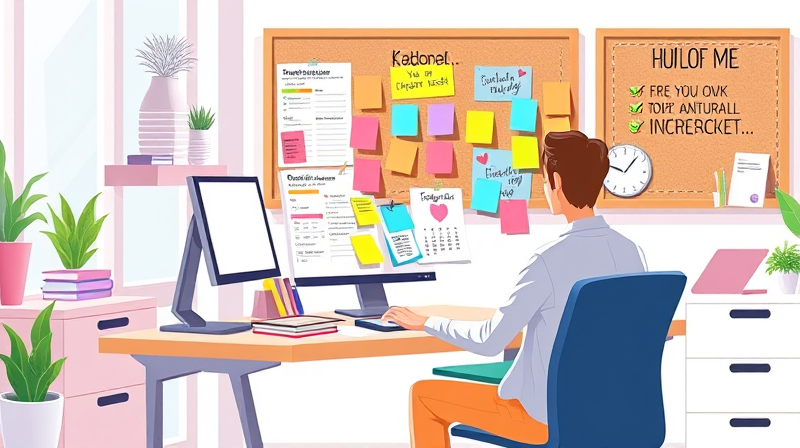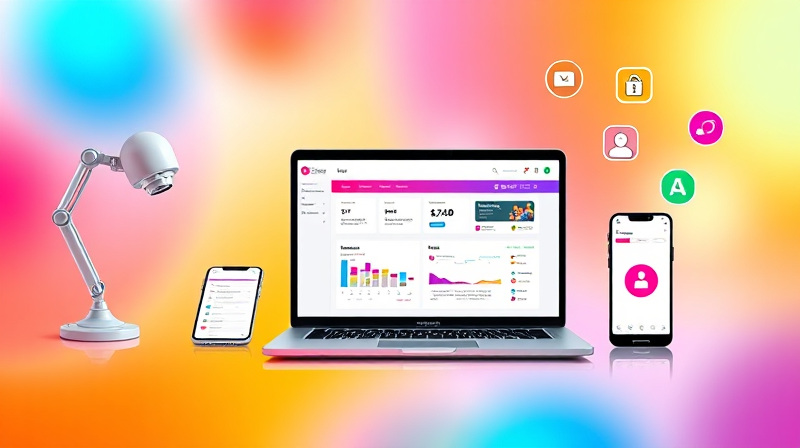In our ever-changing world, continuous education has evolved into a cornerstone for both personal growth and professional advancement. Establishing a learning schedule not only helps in acquiring new skills but also fuels your passion for knowledge, allowing you to stay updated with industry trends and pursue personal interests. With an organized plan, learning transforms into a lifelong journey rather than a sporadic task.
To embark on this educational journey, it is essential to understand that planning your studies is as important as the content you consume. Every individual has unique aspirations and capabilities, and by setting up a schedule that matches your personal rhythm, you create an environment that supports success and fulfillment.
Reflect on Your Goals and Interests
Before dedicating time to various subjects or programs, take a step back and assess your personal and career goals. Ask yourself questions like: What skills do I want to acquire? How do these skills complement my current profession or my personal hobbies? By answering these questions, you pinpoint what truly matters to you and structure your education schedule accordingly.
Start by writing down both short-term and long-term objectives. This could involve exploring new areas of interest or deepening your expertise in your professional field. This practice not only motivates you but also serves as a guide when choosing courses or programs to enroll in.
Embrace Diverse Learning Opportunities
Diversifying your learning methods is vital in keeping your educational journey exciting and enriching. Explore various learning opportunities and formats to discover what best suits your lifestyle. Many institutions now offer an array of learning options, including online courses, workshops, and hybrid models that blend classroom experiences with online convenience.
- Online Learning Platforms: Platforms such as ed2go provide hundreds of noncredit courses on subjects ranging from technology to creative arts. These platforms offer the flexibility to learn at your own pace, making them ideal for busy individuals.
- Community College Programs: Local community colleges, like Lone Star College and Wayne County Community College District, offer fast-track certificates and specialized courses designed for career advancement. These programs are typically short in duration yet offer robust, industry-relevant skills.
- Workshops and Seminars: One-day or weekend workshops can give you quick wins and satisfy your immediate need for education without the commitment of a long-term course.
By mixing these various formats, you can tailor a learning environment that caters to different needs and keeps the process engaging and effective.
Create a Balanced Learning Schedule
One of the primary challenges in continuous education is striking a balance between learning and other aspects of your life. A well-crafted schedule should ensure that you engage in both short-term courses and longer, more in-depth programs. Balance is key to maintaining momentum and preventing burnout.
Consider scheduling a mix of course activities: allocate certain days for short courses like introductory lessons in computer literacy, while designating additional time weekly for deeper subjects like language studies or creative arts. This strategy not only provides structure but also offers flexibility to adapt based on your progress and time availability.
Remember, a balanced schedule includes downtimes. It's important to set aside moments for review and relaxation so the learning experience remains enjoyable rather than stressful.
Leverage Community and Networking Opportunities
Another significant benefit of continuous education is the abundance of networking opportunities. Many educational programs are designed to encourage collaboration. Engage with peers and industry experts to enrich your learning experience, share insights, and exchange ideas. Networking can lead to new career opportunities, partnerships, and lifelong friendships that further enhance your journey.
Local educational institutions often host community events, webinars, or in-person meetups. Consider being an active participant, as these platforms can provide additional motivation and a higher level of accountability as you pursue your educational goals.
Utilize Technology and Online Resources
Embracing technology is essential for modern education. There has been a significant shift towards online educational resources that are accessible to anyone with an internet connection. Utilizing these online platforms means you can adapt your studies to your own schedule. This flexibility is particularly beneficial when juggling work and personal responsibilities.
In addition to structured courses, the internet offers an abundance of free tutorials, webinars, and expert talks. Use these resources to complement your learning and keep your knowledge up-to-date with the latest trends.
Incorporate a digital calendar or scheduling tool to keep track of your courses, deadlines, and study sessions. This habit not only fosters a sense of accountability but also ensures that your learning journey remains organized and progressive.
Set Realistic Expectations and Stay Informed
While it is exciting to plan for continuous education, setting realistic expectations is crucial. Understand that learning is a gradual process. Start small by enrolling in one or two courses and slowly expand your curriculum as you become more comfortable with managing your studies along with other commitments.
Stay up-to-date with new offerings from educational institutions and online platforms. Sign up for newsletters and course alerts, and periodically review your educational goals. This proactive approach will ensure that your learning schedule remains aligned with your evolving interests and objectives.
Moreover, continuous education is both a personal and professional commitment. Recognize that even small increments of progress add up over time, and do not feel discouraged by setbacks. Instead, use them as learning opportunities that ultimately contribute to your personal growth and development.
In summary, creating a robust schedule for continuous education involves a blend of self-assessment, technological integration, and community engagement. With passion and perseverance, you can unlock a transformative educational experience that not only enhances your career prospects but also enriches your personal life.
By following these strategies, you empower yourself to take control of your learning, adapt to the changing demands of the modern world, and continuously push the boundaries of what you can achieve. A well-planned educational schedule is not merely a list of courses, but a roadmap to a brighter, more fulfilling future.








